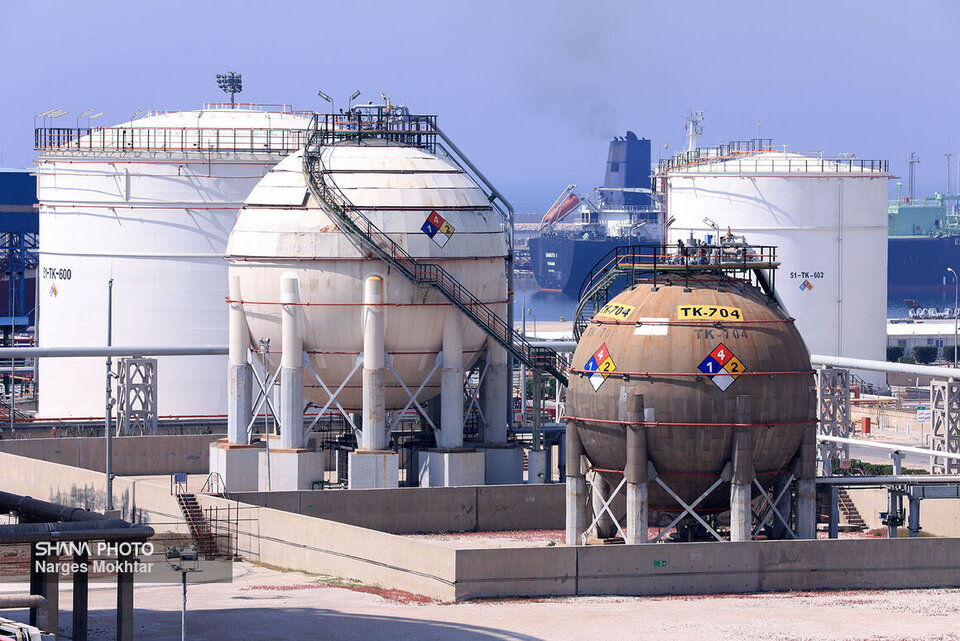He said NPC had exported Iranian-branded urea produced at petrochemical plants last calendar year.
Shahmirzaei said 10 petrochemical projects would come on-stream this calendar year to bring the country’s output capacity to beyond 95 million tonnes.
He said the petrochemical industry earned Iran more than $26 billion in revenue last calendar year.
Noting that Iran’s petrochemical sector is risk-free, he said that any amount of investment in this sector would yield proper rates of return. “Therefore, Iran could be a market for long-term investment.”
Iran depends on its petrochemical products to earn hard currency. With the country’s petroleum sector under sanctions, it has been exporting petrochemical to old and new customers.
Petchem ambitions
Although sanctions remain in place against Iran’s petroleum industry, the country has tried its best to push ahead with producing and exporting its petroleum products.
Last calendar year was a good year for Iran’s petrochemical industry. The country managed to inaugurate two new plants, let alone supply 69 million tonnes of petrochemicals for $26 billion.
According to Shahmirzaei, Iran would be pursuing ambitious plans in the petrochemical sector in the current calendar year as 70 petrochemical plants managed to supply products beyond their obligations last calendar year.
Noting that Iran’s petrochemical sector sought to become self-reliant last calendar year, he said that new feasibility studies would be carried out for development of the petrochemical industry after spatial planning.
Petchem potential
The past two calendar years were two years of prosperity for Iran’s energy diplomacy. Iran resumed its gas cooperation with Turkmenistan. Minister of Petroleum Javad Owji travelled to Latin America and signed memorandums and agreements for energy cooperation. Iran and Russia upgraded ties.
In the petrochemical sector, NPC experts and directors have visited Brazil and Siberia in a bid to introduce the opportunities and capabilities of Iran’s petrochemical industry. Last calendar year, Iran managed for the first time to export catalysts to Russia. Iranian catalyst is currently being exported to northern neighbors, European nations as well as Far East.
According to Shahmirzaei, new markets have been found for Iran’s petrochemical sector. He said Iran did not worry about selling petrochemical products as Iran’s petrochemical sector relies on the country’s rich hydrocarbons. Iran sits atop the world’s largest oil and gas reserves combined. That would empower petrochemical companies to market their products effectively.
Diversity in markets
Shahmirzaei said NPC was involved in efforts to introduce Iranian-branded petrochemical products to the world. “Since long time ago, Iranian urea was sold under the name of other countries. We accepted risks of sanctions to supply this product with Iranian brand.” He added that plans were under way for exporting more Iranian-branded products in the current calendar year.
Extensive sanctions against Iran’s petroleum industry have prompted many companies to sell Iranian products under non-Iranian names on international markets in a bid to spare any harm from US sanctions.
“It would be in Iran’s best interests to export its products and technical and specialized services directly,” said the NPC chief, adding that more diversity was envisaged in petrochemical exports in the current calendar year.
He said the petrochemical sector would be Iran’s leading industry in the future, adding: “Petrochemicals serve as raw materials for many other industries in the country. Therefore, we have to move towards supplying final products and creating maximum value-added.”
80% local manufacturing
Shahmirzaei said: “The petrochemical industry is not facing an easy path before reaching full independence. We have stepped into this path and we’ll go ahead until we reach a conclusion.”
He said about 80% of petrochemical projects would be developed by reliance on Iranian manufacturers, adding that NPC had formulated cohesive plans for the remaining 20%, which would require cooperation on the part of industrialists, technicians, scientific and research centers and knowledge-based companies.
27mt exported
The CEO of NPC said Iran exported 27 million tonnes of petrochemicals last calendar year for $16 billion, adding that 12 million tonnes of petrochemicals were also sold on local markets for $10 billion.
Shahmirzaei gave a positive assessment of growth of petrochemical production last calendar year. “According to the planning made, in case of sustainable supply of feedstock for petrochemical plants, petrochemical production will reach 80 million tonnes in the current calendar year,” he said.
550 grades
He said more than 550 grades of products were being produced in the petrochemical and polymer industry.
“NPC has defined more than 110 large and small-sized projects that are under way,” he said, adding that the projects were proven to be attractive to foreign investors who had visited them.
14th IPF
Tehran is to host May 1-2 the 14th International Petrochemical Forum (IPF). Shahmirzaei said this event would be a good opportunity for petrochemical actors to share and exchange know-how and experience. “We will try to benefit from this scientific event in the best way possible,” he said. Iran last hosted IPF meeting five years ago.
Shahmirzaei said: “Holding such events would help improve the quality of the petrochemical industry, which would subsequently let Iran supply strategic petrochemical products to supply midstream and downstream industries.”
Shahmirzaei said: “In case we utilize the existing capacities we would be able to make up for delays in the petrochemical industry.”
Iran Petroleum


Your Comment